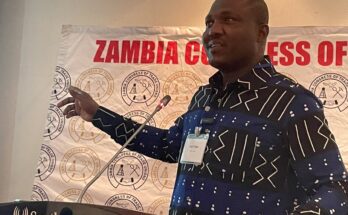Alhaji Idriss Abass is the director-general, FCT Emergency Management Agency (FEMA). In this interview with PAUL OKAH, he shares tips of how residents can remain safe during the dry season, especially before, during and after fire outbreaks. He also says the lack of funding and legislation has been preventing the agency from delivering on its mandate.
Fire disaster is occurring in different parts of the country on a daily basis, but it appears that none has so far been recorded in the FCT. Is it that territory is lucky or what?
No, we have been have had series of fire incidents in the FCT on a daily basis. We used to have an average of five fire incidents on a daily basis. The only thing is that we have not had that large magnitude of fire incidents. This is because, if you look at the planning of the city, it is different from all those locations where we have had incessant fire outbreaks. FCT is well-planned. There is enough space and we have also been carrying out sensitisation, mobilising the public on what to do before, during and after a fire incident. The most important thing we are emphasising is the concept of disaster risk reduction. By disaster risk reduction, we want to make sure that we prevent disaster from happening and that has been working very well. Through our sensitisation efforts, we have been going round the communities. Remember that I once told you that we have large volunteers and vanguards across the FCT. The six area councils and our local emergency management committees are also in place. They are helping us to really do their bits at the area councils; so that is just the secret and then largely God is behind us.
This year’s dry season is around the corner, how prepared is FEMA in tackling fire disasters across the territory?
Part of the preparation is the early warning we have been passing and also the discussions we engage with FCT residents. We are not relenting in giving out our time to ensure the safety of lives and property in the FCT. You need to know that we have also tried as much as possible to identify those areas that are vulnerable to fire outbreaks in the area councils. We discovered that parts of Kwali, Kuje and Bwari are vulnerable to fire outbreaks. Also, Karshi is vulnerable to fire outbreaks. We have carried out large concentration and segmentation studies on Karshi. The beauty of carrying out those studies is to be able to ascertain the areas or those who are vulnerable, so that you can just put your weight around that area; to ensure that it is not prone to fire outbreaks.
So, what should FCT residents know about fire disaster management and safeguarding themselves in this dry season?
Well, like I said, the town hall meetings and series of sensitisation we carried out are for the safety of residents. People should not leave their appliances on when they are not in use. We also tell them to desist from bush burning or even burning waste near their houses. When some accumulate large waste, the next thought is ‘let me set it on fire’ without monitoring it, which could lead to fire outbreaks. So, they should avoid that. We also teach them that, at any point in time, they shouldn’t hesitate to call for help by dialing the 112 toll free emergency number; no matter how little they see anything that is strange to them. That is also helping us. So, we believe that they will be able to abide by the instructions.
Many agencies usually have problems of funding when it comes to fighting disasters. Are your equipment up to date and functional?
We are not isolated from the problems of many agencies with regards to funding. We are not operating in the moon. We are also operating in the same environment and we have the same problem of funding. If we have the funds and the human capacity, we will be able to do a lot more. We will be able to carry out more safety awareness in the city. I always draw the attention of the public to know that Abuja is strategic in nature. It is different from all other states. This is where our president is. This is where our vice- president is. This is where we have all the heads of diplomatic missions in Nigeria. All other organisations, from UN, USAID, etc, are all in Abuja. We need to give emphasis to Abuja. We need to build strength in Abuja, but the funds are not forthcoming.
Another major obstacle that is hindering our operations is legislation. Up to this moment, FEMA is not having legislation. The last time our bill was sent to the president, it wasn’t touched and no explanation whatsoever was given for us to know why. But we are not deterred. We are still pursuing that cause, because we know that we cannot be able to achieve much without laws. We need to have our laws in place. We need to be positioned in the system and we need to get more and more support. If we have legislation, we will be able to source for donors, so that we will be able to add more. We have a template. We have a plan to have ambulance services in the city; which is very important. With the coming of 112, if you call for ambulance, what ambulance are we going to take to you? So, the 112 toll free emergency number has some components that have to go with it. At least, we need to have vibrant hospitals across the areas that can handle emergencies and so on and so forth. So, a lot needs to be done, honestly.
So, legislation and funding are the greatest problems of the agency?
Yes, indeed, they are. Like I said, we are not operating in the moon. We are having the same problems as other agencies having issues with funding. If we have legislation, we will be able to source for funds from donors, so legislation is a great problem. However, I thank God we now have the Ministry of Humanitarian Affairs, Disaster Management and Social Development. With the new ministry, I think Nigeria will be positioned properly to handle disaster management because, if you look at it, we need a coordinating body. We need to have our presence at the Federal Executive Council (FEC), which is the highest decision making body in the country. The FEC meets every week, but nothing on disaster is being discussed. Even when there is a heavy casualty, a memo will be done and then it will be trashed out at the FEC meeting.
But now that we have the presence of the Minister of Humanitarian Affairs, Disaster Management and Social Development seated at FEC, we believe that things will change. We are also advocating that we should put disaster management now into our rolling plans. Now that we are going to have a development plan, we should be able to have disaster management policy so that every level of government, from local government to federal government, the culture is being imbibed and everybody should be able to know what disaster management is all about. That will reduce the money the government is spending on relief materials, because the main issue is not the relief materials. The main issue is to be really able to tackle and prevent disaster from happening. By doing so, we would be able to save lives and property. We will then be able to build community’s resilience among all the cities and villages in the country; then you will see wonders.



